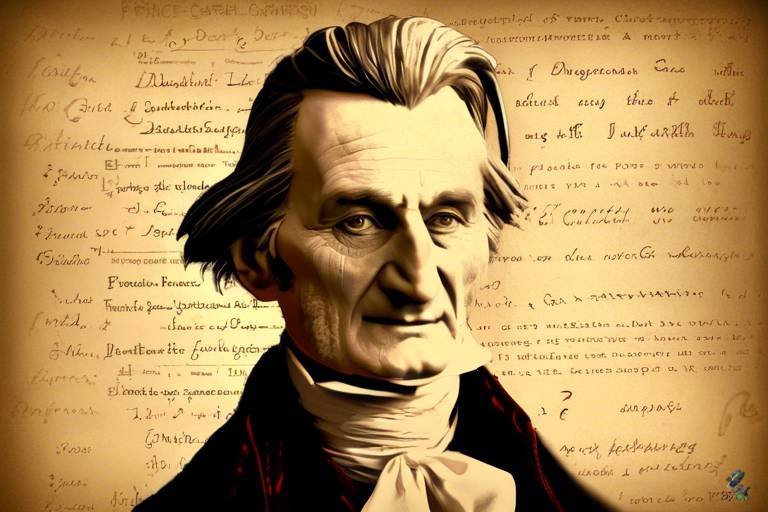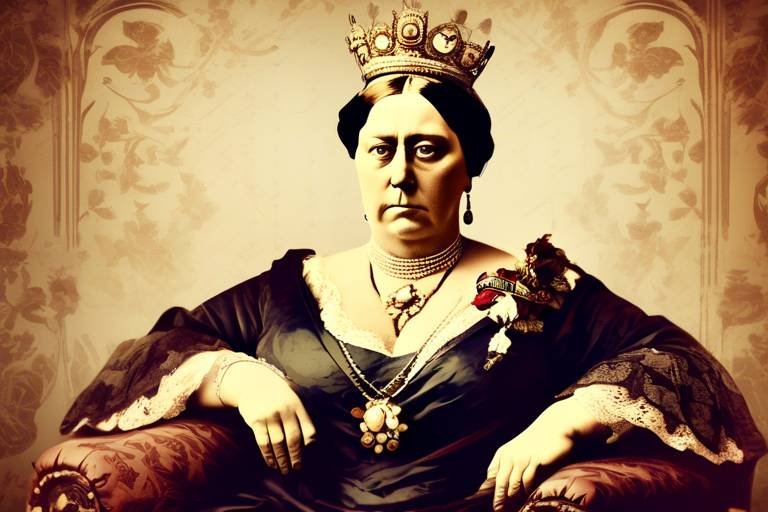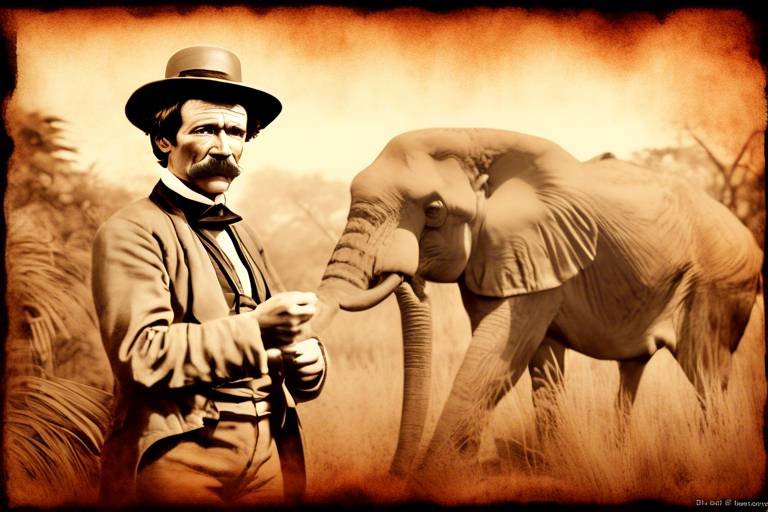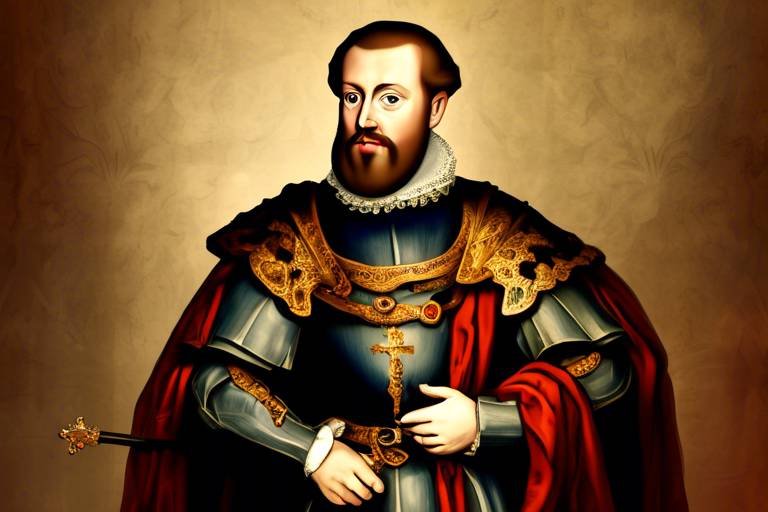Louis Pasteur: The Innovator in Vaccines
Louis Pasteur, a name synonymous with innovation and progress in the field of vaccines. His groundbreaking work has not only revolutionized medicine but also saved countless lives through the development of vaccination techniques. Pasteur's legacy as a pioneer in microbiology continues to inspire scientific advancements and shape the way we combat infectious diseases.

Early Life and Education
Exploring the life and groundbreaking work of Louis Pasteur, a pioneer in the field of vaccines, whose discoveries revolutionized medicine and saved countless lives through the development of vaccination techniques.
Before delving into Louis Pasteur's remarkable contributions to science, it is essential to understand the early influences that shaped his path towards becoming a renowned scientist. Born on December 27, 1822, in Dole, France, Pasteur grew up in a humble family where his father was a tanner. His early education was marked by a keen interest in chemistry and physics, which eventually led him to pursue a career in science.
After completing his primary education, Pasteur went on to study at the Royal College of Besançon and later earned a Bachelor of Science degree from the University of Paris. His academic journey continued as he obtained a doctorate in chemistry in 1847, showcasing his dedication to scientific exploration and discovery.
Throughout his formative years, Pasteur's curiosity and passion for experimentation propelled him towards uncovering the mysteries of the natural world. His early experiences laid the foundation for his future groundbreaking research in microbiology and vaccination, setting the stage for his enduring legacy in the field of medicine.
1. What was Louis Pasteur's most significant contribution to science?
2. How did Pasteur's germ theory revolutionize medicine?
3. What challenges did Pasteur face in developing the rabies vaccine?
4. How has Pasteur's work influenced modern vaccination practices?

Germ Theory of Disease
The proposed by Louis Pasteur revolutionized the way we perceive and combat illnesses. Before Pasteur's groundbreaking discoveries, many believed that diseases were caused by "bad air" or other mysterious factors. However, Pasteur's research demonstrated that microscopic organisms, known as germs or microbes, were responsible for causing various illnesses. This theory was a game-changer in the field of medicine, as it provided a scientific basis for understanding the origins of diseases and paved the way for effective preventive measures.
By identifying the role of germs in causing diseases, Pasteur laid the foundation for modern hygiene practices and infection control. His work highlighted the importance of sanitation, sterilization, and vaccination in preventing the spread of infectious diseases. The Germ Theory of Disease not only enhanced our understanding of how illnesses spread but also prompted the development of antibiotics and vaccines to combat harmful microbes.
One of the key implications of the Germ Theory of Disease was the recognition of contagion as a significant factor in disease transmission. Understanding how germs are transmitted from person to person led to the implementation of public health measures such as quarantine, isolation, and vaccination programs. These strategies have been instrumental in controlling outbreaks of infectious diseases and preventing epidemics.
Moreover, Pasteur's Germ Theory of Disease sparked a paradigm shift in medical thinking, prompting researchers and healthcare professionals to focus on identifying and targeting the specific pathogens responsible for various illnesses. This shift towards microbiological research has led to significant advancements in diagnosing and treating infectious diseases, ultimately improving global health outcomes.

Rabies Vaccine Development
When it comes to the development of vaccines, Louis Pasteur's work on the rabies vaccine stands out as a monumental achievement in the history of medicine. Pasteur's groundbreaking research and dedication to combating infectious diseases led to the development of the first successful rabies vaccine, marking a significant milestone in the field of immunization.
Through rigorous experimentation and innovative techniques, Pasteur was able to create a vaccine that effectively prevented the spread of rabies, a deadly viral disease transmitted through the bite of infected animals. His meticulous approach to vaccine development laid the foundation for modern vaccination practices and set a precedent for the future of immunization technology.
One of the key aspects of Pasteur's rabies vaccine development was his use of attenuated (weakened) strains of the rabies virus to stimulate the body's immune response without causing the full-blown disease. This approach not only proved to be effective in preventing rabies but also demonstrated the potential of using weakened pathogens to confer immunity against infectious diseases.
Furthermore, Pasteur's success in developing the rabies vaccine showcased the power of vaccination in preventing the spread of deadly diseases and highlighted the importance of ongoing research and innovation in the field of immunology. His work paved the way for future advancements in vaccine technology and solidified his legacy as a pioneer in the fight against infectious illnesses.

Pasteurization Process
Louis Pasteur's innovative pasteurization process revolutionized food safety practices and has had a lasting impact on public health worldwide. By subjecting perishable products such as milk to heat treatment, Pasteur discovered a method to kill harmful bacteria and extend the shelf life of these items. This groundbreaking technique not only ensured the safety of consumable goods but also significantly reduced the risk of bacterial contamination and foodborne illnesses.
The pasteurization process involves heating the liquid to a specific temperature for a predetermined period, effectively destroying pathogenic microorganisms while preserving the product's nutritional value. This method has become a cornerstone of the food industry, ensuring that consumers can enjoy dairy products and other perishables without fearing the consequences of bacterial infections.
Through Pasteur's pioneering work in pasteurization, the concept of food safety was elevated to a new level, setting a standard for quality control and hygiene in food production. The widespread adoption of this technique has led to a significant reduction in instances of foodborne illnesses and has safeguarded public health on a global scale.

Legacy and Impact
Louis Pasteur, a pioneer in the field of vaccines, revolutionized medicine and saved countless lives through the development of vaccination techniques.
Reflecting on Pasteur's enduring legacy in the field of medicine and public health, his contributions continue to inspire scientific advancements and save lives globally. Pasteur's work laid the foundation for modern vaccination practices and set the stage for groundbreaking discoveries in immunology.
One of the key aspects of Pasteur's legacy is his emphasis on the importance of preventive medicine through vaccination. By demonstrating the efficacy of vaccines in preventing infectious diseases, Pasteur paved the way for the establishment of global vaccination campaigns that have played a crucial role in eradicating and controlling deadly illnesses.
Moreover, Pasteur's work on the germ theory of disease fundamentally changed the way we understand and combat illnesses. His research highlighted the role of microorganisms in causing infections, leading to significant advancements in hygiene practices and disease prevention strategies.
The impact of Pasteur's pasteurization process cannot be overstated. By developing a method to kill harmful bacteria in perishable products like milk, Pasteur revolutionized food safety standards and significantly reduced the spread of foodborne illnesses.
Despite facing controversies and criticisms during his career, Pasteur's dedication to scientific inquiry and relentless pursuit of knowledge left an indelible mark on the field of microbiology. His legacy continues to shape the way we approach public health challenges and underscores the importance of scientific innovation in saving lives.

Controversies and Criticisms
Throughout his career, Louis Pasteur faced various controversies and criticisms that challenged his scientific reputation and methods. One of the major debates revolved around the validity of his germ theory of disease, which proposed that microorganisms were responsible for causing illnesses. Many in the scientific community initially rejected this idea, questioning Pasteur's research and findings.
Additionally, Pasteur's approach to vaccine development, particularly his methods of attenuating and administering vaccines, sparked controversy. Some critics argued that his techniques were risky and unproven, leading to concerns about the safety and efficacy of his vaccines.
Moreover, Pasteur's rivalry with other prominent scientists of his time, such as Claude Bernard, further fueled controversies surrounding his work. The competition and conflicts between these scientific figures often overshadowed Pasteur's contributions and led to ongoing scrutiny of his achievements.

Global Vaccination Campaigns
Global vaccination campaigns have been instrumental in the fight against infectious diseases on a worldwide scale. The impact of Louis Pasteur's work in developing vaccines has been profound, setting the stage for organized efforts to immunize populations against deadly illnesses. These campaigns aim to reach as many people as possible, ensuring widespread protection against diseases such as polio, measles, and influenza.
One of the key components of global vaccination campaigns is the collaboration between governments, international organizations, healthcare providers, and communities. This coordinated approach helps in the distribution of vaccines, raising awareness about the importance of immunization, and addressing any barriers to vaccination access. Through these efforts, significant progress has been made in reducing the burden of preventable diseases and improving public health outcomes.
Furthermore, global vaccination campaigns play a vital role in achieving herd immunity, where a high percentage of the population is immune to a particular disease, reducing its spread and protecting vulnerable individuals who cannot be vaccinated. This collective immunity is crucial in preventing outbreaks and ultimately eradicating certain diseases, as seen with the successful eradication of smallpox through vaccination campaigns.
By leveraging the advancements in vaccine technology and building upon the foundation laid by pioneers like Louis Pasteur, global vaccination campaigns continue to save lives and contribute to the overall well-being of communities around the world. The ongoing efforts to expand access to vaccines, address vaccine hesitancy, and adapt to emerging health threats highlight the importance of sustained commitment to immunization as a public health priority.

Modern Vaccine Development
Modern Vaccine Development has been significantly influenced by the pioneering work of Louis Pasteur in the field of immunization. His groundbreaking discoveries laid the foundation for the development of modern vaccines, leading to the prevention of numerous infectious diseases worldwide. Through Pasteur's research on vaccination techniques and understanding of the immune system, scientists have been able to create highly effective vaccines that protect individuals from various pathogens.
One of the key advancements in modern vaccine development is the utilization of recombinant DNA technology. This technique allows scientists to genetically engineer vaccines by inserting specific genes from pathogens into harmless viruses or bacteria. By doing so, the immune system can recognize these antigens and mount a targeted immune response, providing long-lasting immunity against the disease without causing illness.
Furthermore, the use of adjuvants in vaccine formulations has enhanced the body's immune response to vaccines. Adjuvants are substances added to vaccines to stimulate a stronger and longer-lasting immune reaction, improving the efficacy of the vaccine. This innovation has been crucial in developing vaccines that provide robust protection against infectious diseases.
Another significant development in modern vaccine technology is the advent of mRNA vaccines. These vaccines work by introducing a small piece of genetic material from the virus into the body, instructing cells to produce a harmless viral protein that triggers an immune response. mRNA vaccines have proven to be highly effective, as demonstrated by their rapid development and success in combating the COVID-19 pandemic.
Moreover, ongoing research in the field of vaccinology continues to drive innovation in vaccine development. Scientists are exploring novel vaccine delivery systems, such as microneedle patches and nasal sprays, to improve vaccine administration and efficacy. Additionally, advancements in vaccine design, including the use of computational modeling and structure-based antigen design, are enabling the creation of tailored vaccines for specific pathogens.
Frequently Asked Questions
- What is Louis Pasteur known for?
Louis Pasteur is renowned for his pioneering work in microbiology and vaccine development. He is credited with the germ theory of disease, the development of the rabies vaccine, and the pasteurization process.
- How did Louis Pasteur's discoveries impact medicine?
Pasteur's discoveries revolutionized medicine by providing a scientific basis for understanding and combating infectious diseases. His work laid the foundation for modern vaccination practices and improved food safety through pasteurization.
- What is the significance of the rabies vaccine developed by Louis Pasteur?
The development of the rabies vaccine by Louis Pasteur was a monumental achievement in the history of medicine. It was the first successful vaccine for a viral disease, demonstrating the effectiveness of vaccination in preventing deadly illnesses.
- How has Louis Pasteur's legacy influenced modern vaccine development?
Louis Pasteur's legacy continues to inspire advancements in vaccine development and immunization technology. His pioneering work has paved the way for the creation of vaccines against a wide range of infectious diseases, contributing to global public health efforts.
- What challenges did Louis Pasteur face in his career?
During his career, Louis Pasteur faced controversies and criticisms related to his research methods and scientific findings. Despite these challenges, his contributions to microbiology and medicine have had a lasting impact on the field.



















